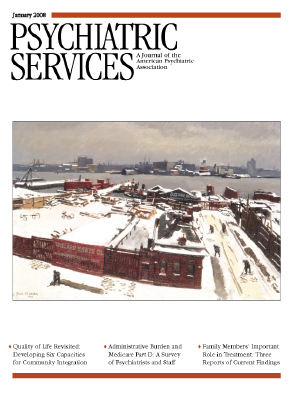In the preface of Melancholia, the authors assert that one objective of the book is to "challenge accepted doctrines" regarding the classification and treatment of depressive illness. To this end, they don't disappoint, approaching this goal with a vigor that emanates from every section. As promised, Michael Alan Taylor and Max Fink thoroughly review all aspects of melancholia; certainly, the book accomplishes this objective effectively. However, the central thrust of the book lies in the arguments the authors present for changing how the field of psychiatry approaches depression.
At the broadest level, the authors assert that melancholia, as classically defined, warrants a separate diagnostic category independent of a major depressive disorder, which they argue has been diluted by "depressive-like" illnesses that cloud clinical decision making and result in reduced quality of care. The chapters are presented as a series of small arguments concentrating on individual aspects of diagnosis, assessment, and treatment; along the way, an exhaustive body of research is compiled and analyzed in the service of these arguments. Although many assertions will feel familiar to readers, such as the contention that pharmaceutical companies have too much influence on diagnostic classification and prescribing practices, a few may be more surprising, such as the suggestion that mania might be best thought of as a melancholic variant.
Though many of the book's arguments are quite persuasive, I didn't agree with every one and found myself quite opposed to a few. However, this isn't a shortcoming. On the contrary, I think efforts like this are supposed to stoke emotions and spark debate, and in that regard, I found the book to be a resounding success. The authors are, of course, biased, and the evidence they cite certainly isn't presented in a neutral way. But their methods of analysis are transparent and that allows for readers to interpret the evidence as well.
A few small faults warrant attention. At times, the authors indulge in overly focused evidence review, particularly with regard to presenting differential diagnoses. Such excessive detail detracted from the overall effectiveness of the book, and some readers may choose to skim these sections. Additionally, although the authors contend that this book focuses on melancholia, they spend significant time citing evidence that questions the validity of nonmelancholic depression and the use of selective serotonin reuptake inhibitors. Although it is beyond the scope of the book, the failure to address such large issues after so provocatively raising them may leave readers somewhat unfulfilled.
Despite these faults, I recommend the book without reservation. The authors targeted this book to all clinicians who are "responsible for the management of patients with mood disorders." Although I agree, I would add that Melancholia is ideally suited to residents and early-career psychiatrists who will not only gain knowledge but will also nurture the valuable skill of critically assessing mainstream psychiatry.

